Guest Post by Ryan Maue
Editor’s Note: This volcanic eruption water vapor estimate analysis given on Twitter by meteorologist Ryan Maue shows that the recent eruption of an underwater volcano near Tonga may have resulted in a larger warming effect than scientists originally reported.
Initial scientific estimates were 50-million metric tons of water injected into the stratosphere by Hunga Tonga-Hunga Ha’apai submarine volcano.
These estimates are likely off by a factor of 3.
New research suggests 150-million metric tons or almost 40 Trillion gallons of water vapor was injected into the upper-atmosphere. A lot of it is still up there floating around.
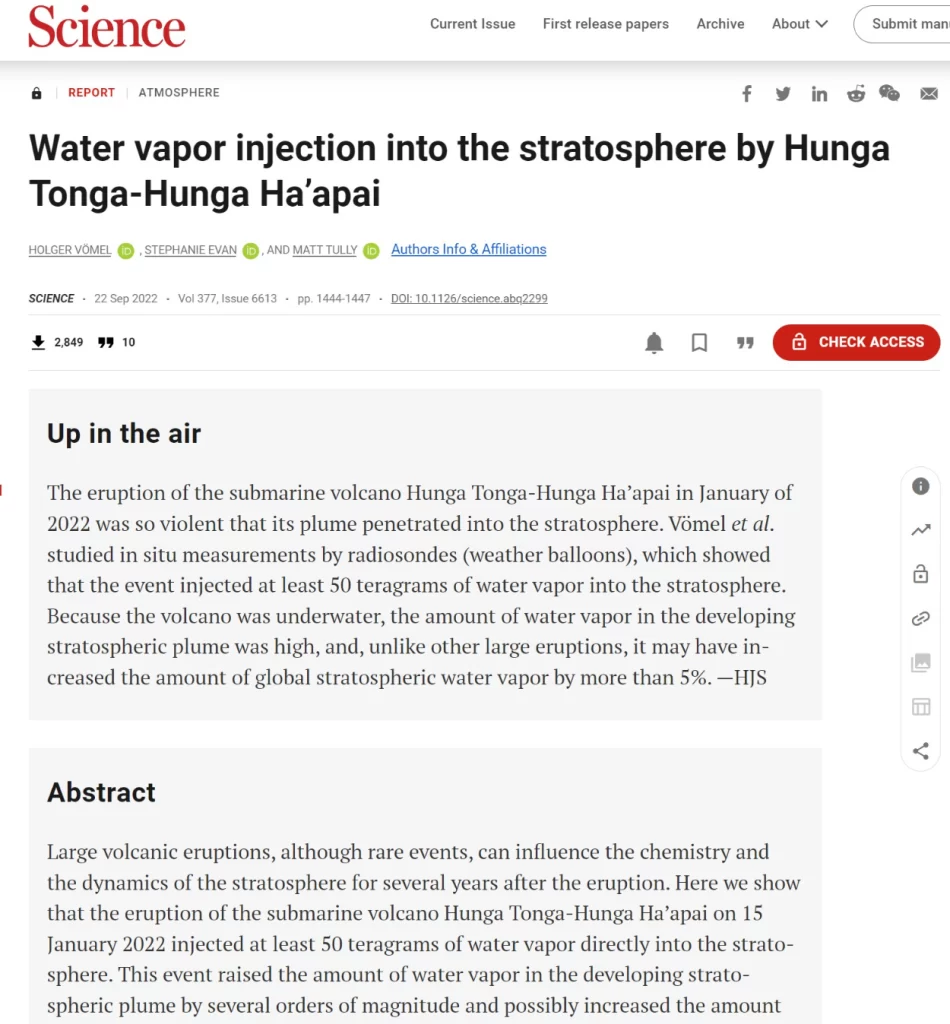
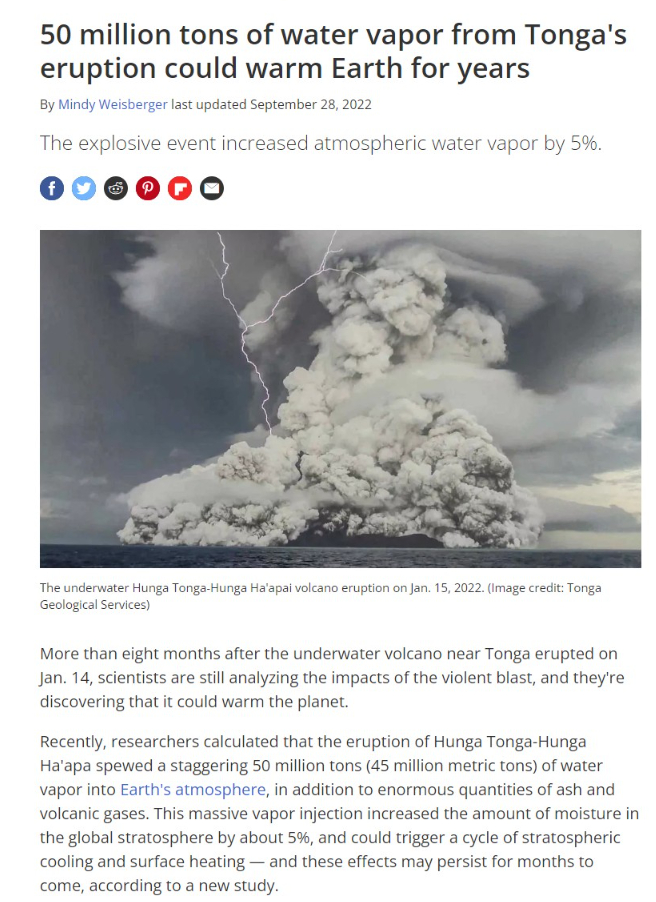
The 40 Trillion gallons of water vapor in the stratosphere represents an unprecedented amount injected in the stratosphere. Volcanic eruptions like Pinatubo blast SO2 into the stratosphere creating a cooling climate shroud for 1-2 years.
But, Hunga Tonga had only 2% of the SO2 as Pinatubo but a gargantuan amount of water vapor, which is well known to WARM the Earth. The question is how much?
The global warming caused by Hunga-Tonga is significant. The eruption of Hunga-Tonga increased the water vapor mass in the stratosphere by 13%, and it will remain there for many years to come.
“The unique nature and magnitude of the global stratospheric perturbation by the Hunga eruption ranks it among the most remarkable climatic events in the modern observation era.”
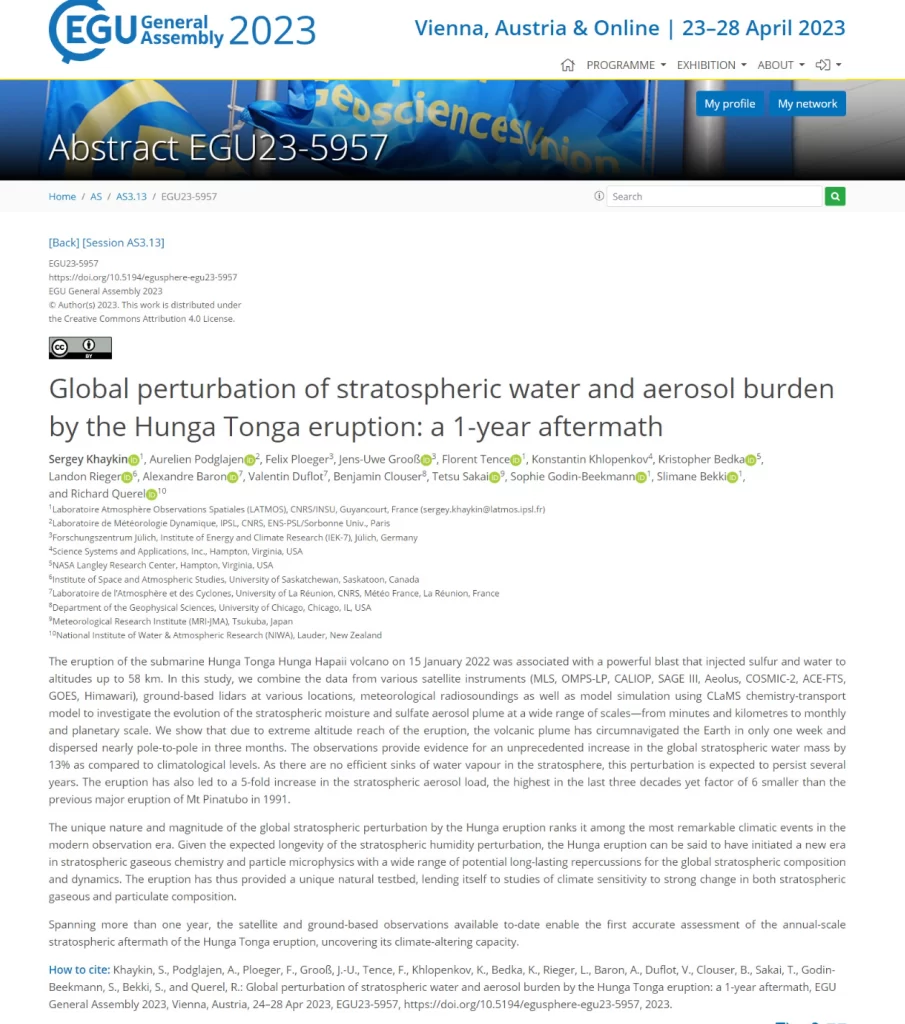
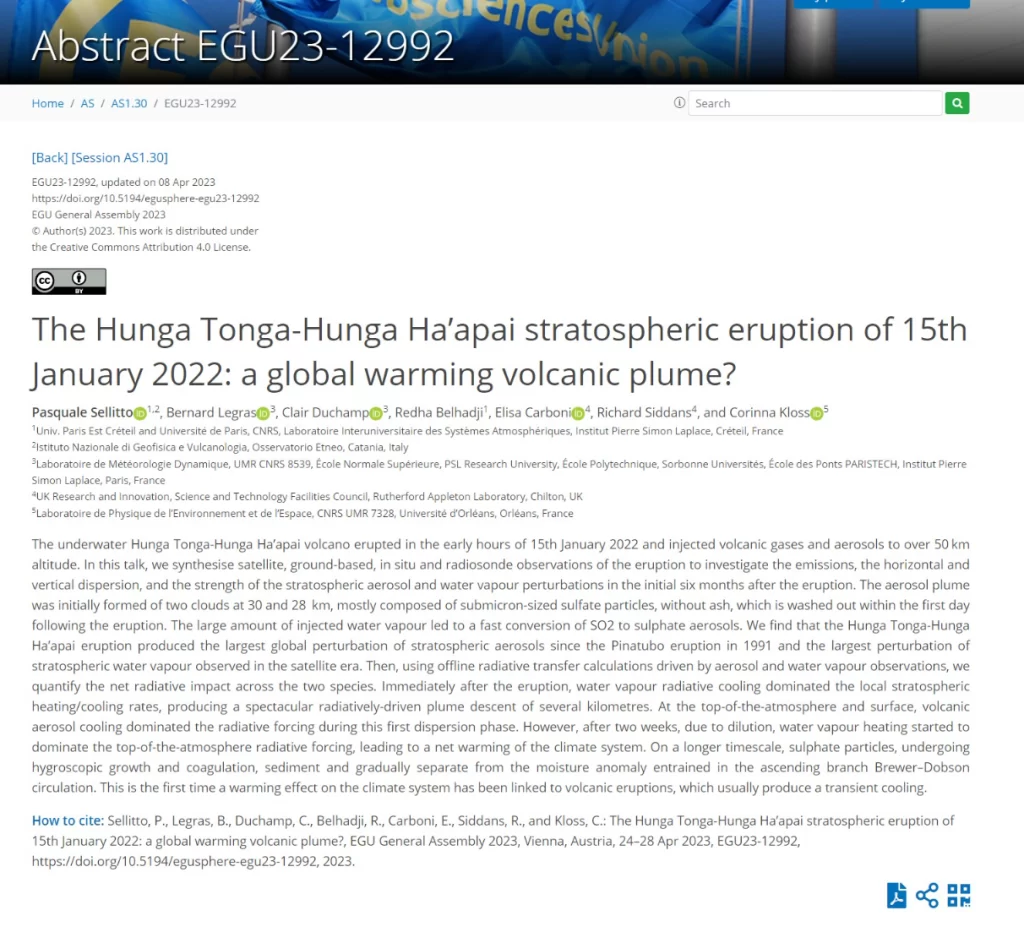
Earlier in March 2023, scientists reported likelihood of warming from the volcanic injection of water vapor into the stratosphere pushing Earth closer to 1.5°C Paris Agreement threshold.
Based upon the last few months, it seems the effect of [the volcano] on global temperatures may have been greatly underestimated. It’s straightforward how to run a radiative transfer model to determine the impacts of adding 150M metric tons of water to the stratosphere. But, detailed climate model simulations are needed to disentangle the atmospheric circulation changes that lead to non-linear feedbacks. The climate is “abnormal” right now, aside from the developing El Niño and background climate change.













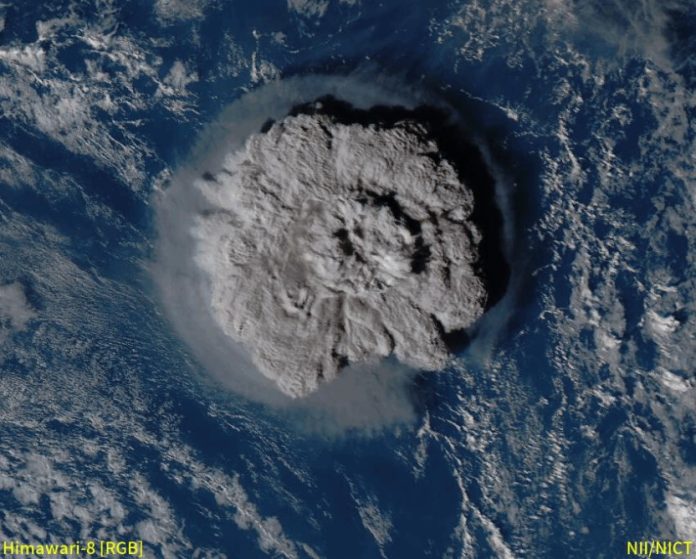




Thank you! I’ve been wondering what effect this might have had on our current heat waves. I wonder also about the effect of underwater volcanoes on ocean temperatures